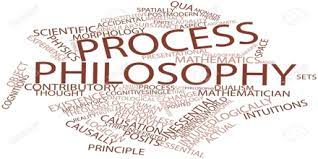Process Philosophy and Its Impact on America
May 01, 2023
This paper discusses the impact of process philosophy on America. Process philosophy, also known as speculative realism, is an influential school of thought that originated in the United States during the 1950s and 1960s. It is based upon a holistic understanding of reality, emphasizing the interconnectedness of all things and the importance of relationships between people and their environment. This paper examines how process philosophy has impacted American culture by examining its effects on literature and art, politics, economics, education, and even health care.
In terms of literature and art, process philosophy has had a significant influence on American authors and artists over the past few decades. Writers such as Cormac McCarthy have used concepts from this philosophical system to create stories that explore themes related to interconnectedness in human life. Artists such as Cy Twombly have used process philosophy to create works of art that focus on the interconnectedness of all elements, from colors and shapes to emotions.

Process philosophy has also been influential in the American political sphere. It promotes a nuanced understanding of power dynamics, focusing on mutual respect and social responsibility rather than hierarchical systems of control. Politicians have adopted this perspective in order to better understand how their decisions affect people’s lives and to craft policies with an emphasis on equity and fairness rather than wealth or status.
In terms of economics, process philosophy has transformed the way business is conducted in America. Companies increasingly recognize the importance of relationships between employers and employees as well as customers, leading to more ethical and fair practices within the workplace. This has been seen in the rise of employee-owned companies, which prioritize a sense of community and collective responsibility rather than relying on a traditional hierarchical system.
Process philosophy has also changed the way education is conducted in America. Rather than focusing solely on memorization and rote learning, educators have begun to focus on helping students develop critical thinking skills and an understanding of how decisions are interconnected. This shift towards inquiry-based learning methods has led to higher levels of engagement among students as well as improved student outcomes.
